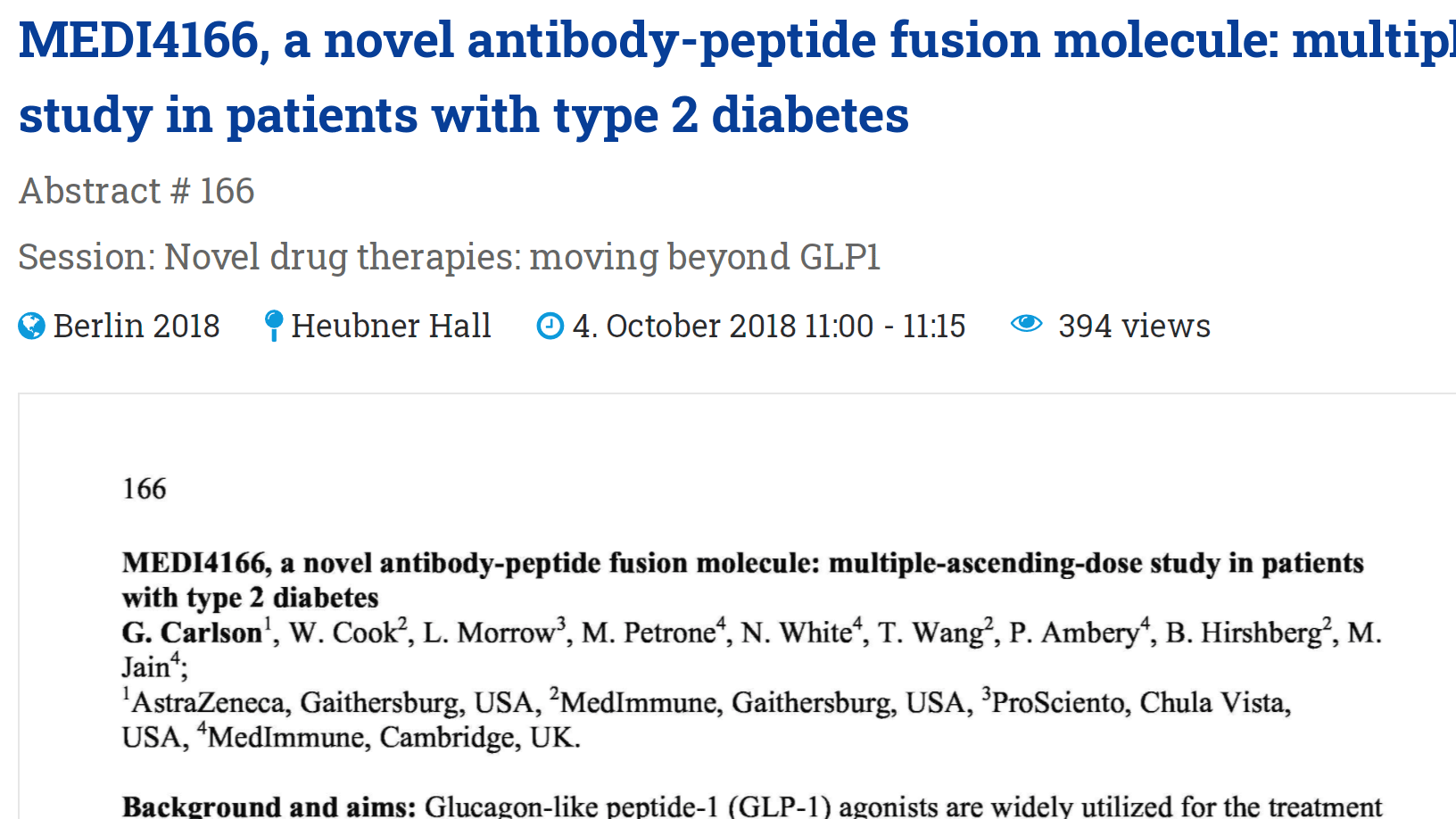About
About this Poster:
Glucagon-like peptide-1 (GLP-1) agonists are widely utilized for the treatment of type 2 diabetes mellitus (T2DM) with proven effects on glycemic control and, in some cases, beneficial effects on cardiovascular (CV) outcomes. High-intensity statin therapy is recommended in T2DM patients with established CV disease and those at increased CV risk. However, some T2DM patients at high CV risk may require additional lowering of their low-density lipoprotein (LDL)cholesterol (LDL-c) levels or may be intolerant to high-intensity statin therapy. Blockade of antiproprotein convertase subtilisin/kexin type 9 (PCSK9) is an effective method to lower LDL-c and decrease CV risk by decreasing degradation of the LDL receptor. MEDI4166 is a novel antibody-peptide genetic fusion molecule comprising a PCSK9 antibody and a GLP-1 agonist. Its dual mechanisms of action are designed to lower glucose and LDL-c in patients with T2DM, with the potential to reduce CV risk.


